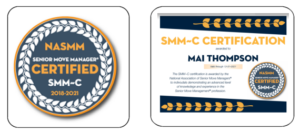Effective Strategies To Deal With Challenging Dementia Behavior
 Dementia is not a gentle or kind illness, it can begin slowly and it’s symptoms can get worse over time. It can affect a person’s…
Dementia is not a gentle or kind illness, it can begin slowly and it’s symptoms can get worse over time. It can affect a person’s…
- Memory
- Judgement and Reasoning
- Language and the Ability to Communicate
- Ability to Focus
- Visual Perception
Dementia can leave a person afraid, angry, paranoid, confused, sad, and can cause them to become aggressive or even violent.
A lady (we’ll call Joan) had a type of dementia that would come and go depending on where she was and how secure she felt there. Towards the end of her life, Joan was admitted into the hospital for some health issues, and once she was there her dementia came on full blown. She thought the entire staff was trying to kill her, including the doctors, she saw smoke that wasn’t there coming from the vents that would kill her, there were things under the bed that weren’t there that were meant to kill her, she wouldn’t eat because the food was poisoned, and the only people that could do for her was her family, plus the staff couldn’t touch the family either. At one point she even began hitting and pulling the hair of one of the nurses.
Joan exhibited almost every sign of dementia.
Strategies for when your loved one’s Dementia turns challenging:
Whether you are family or a caregiver, or both, it can be difficult, frustrating and very upsetting when this type of behavior begins. I hope these few strategies will help you meet the challenge:
- If your senior begins accusing people of things they didn’t do, like “Joan” did above, you need to remember that this is the disease speaking. Due to the deterioration of brain cells, delusions may begin. There are many types of delusion that may surface, even hoarding, because they think they will lose their things.
- If situations similar to these begin to happen, stay calm and reassuring, listen to their concerns and reassure them that you are there, you’re on their side and you won’t let whatever they are concerned about happen.
- Don’t debate with them that none of these things are or will happen. They “know” it’s happening, you won’t ever change their mind, and you will only upset them more.
 If your senior becomes physically aggressive, you have to remember their words and actions are really not intentional.
If your senior becomes physically aggressive, you have to remember their words and actions are really not intentional.- They may become very belligerent and intent on something…”Joan” decided she was going home and there was nothing you could do to stop her. If you asked her if she wanted something to eat, she would yell, “I’m going home”, or if you tried to visit with her, she would yell, “I’m going home”, and when you weren’t looking, she would try to slip out of bed. What she and others like her are feeling is fear and helplessness. This is when Joan’s hitting and hair pulling began.
- Again, the best thing you can do is to be calm and don’t debate…and refrain from using the the word “no”, a word that only makes them feel more aggressive and fearful.
- Try to determine what is bringing this behavior on; do they not want to be touched, or bathed, talked about in their presence, or just being told they cant do what they want to do.
- If you can’t calm them down, it is probably wise to give them some space alone where they might be able to calm down. This didn’t work for “Joan”, but each person is different.
- People with dementia often become overly confused about where they are and why they are there, this is a memory problem, this if very frightening. They long for and want to get back to a better time or better place, a time when they were actually in control of their own life.
- If your loved one is confused about why they aren’t in their own home, you can’t really ignore them, you must give them a response, but keep it brief and not lengthy, and forget trying to reason with them about why they are there and why they can’t go home…reasoning doesn’t work. Give a simple, but brief answer such as, “we can’t go until later because “traffic is too heavy”, or “the weather is too bad to drive in.” For “Joan” when she kept yelling that she was going home, her family told her she could go home as quick as her heart was stronger…that only worked for a couple of days.
These tips might help you either prevent or keep agitation to a minimum:
 Avoid the triggers that set them off. You will have to discover what is irritating them, and it could be a number of things such as:
Avoid the triggers that set them off. You will have to discover what is irritating them, and it could be a number of things such as:- Certain noises
- Too much light
- Keep their space calm, quiet and without stress
- Make sure they are comfortable, rested, fed, and pain free
- Help them get some type of mild exercise
- Keep life and routines for them as simple as possible.

 We are Certified Senior Move Managers recognized by our National Association of Senior Move Managers, NASSM! We are committed to serving our seniors with a high standard of ethics, best business practices and continuing education to help make whatever transition they are going through a Smooth Transition.
We are Certified Senior Move Managers recognized by our National Association of Senior Move Managers, NASSM! We are committed to serving our seniors with a high standard of ethics, best business practices and continuing education to help make whatever transition they are going through a Smooth Transition.
Contact us to learn how we can help you and/or your family cope with a senior downsizing anywhere in the Phoenix East Valley area. We would love to serve you. 480-339-0011

Comments are closed.